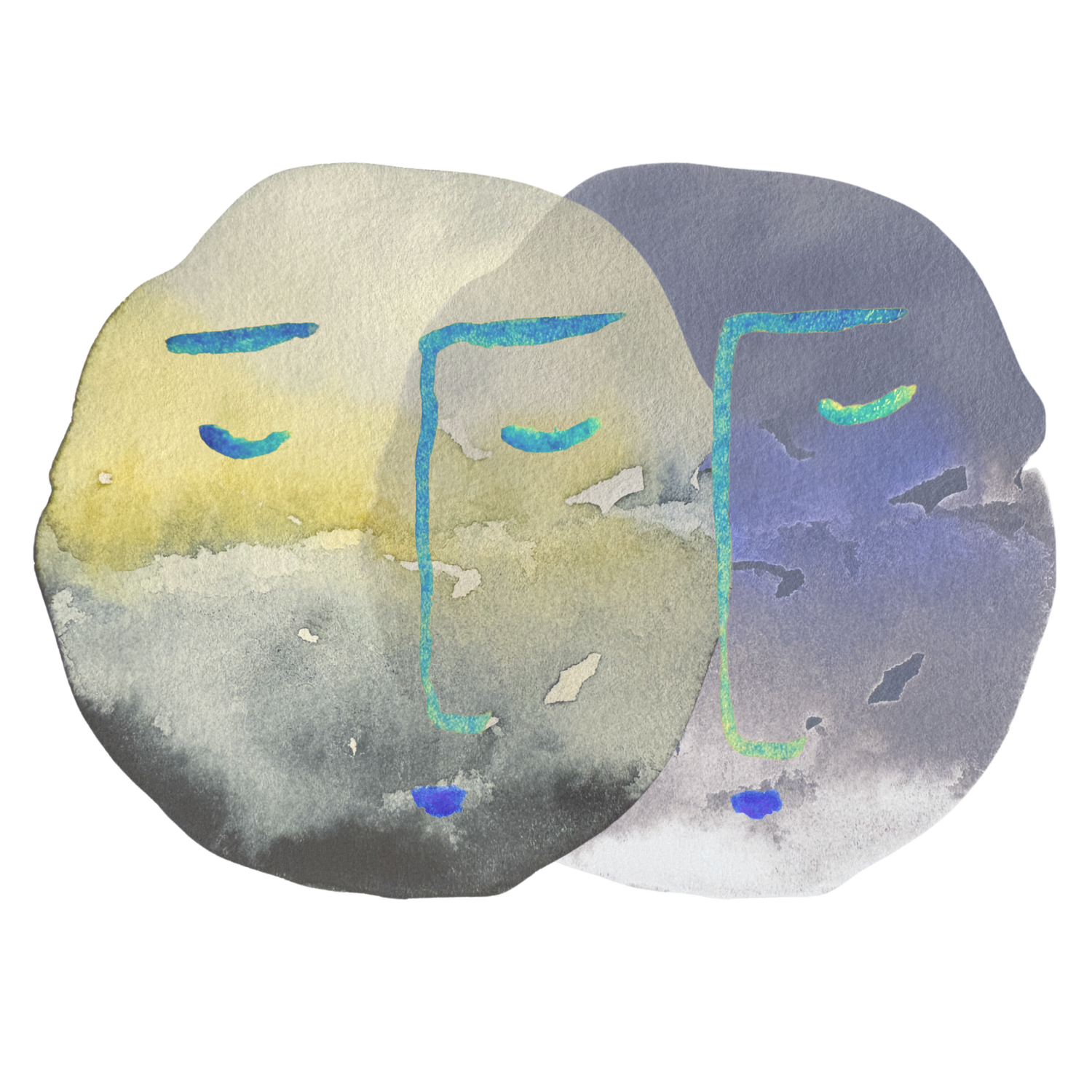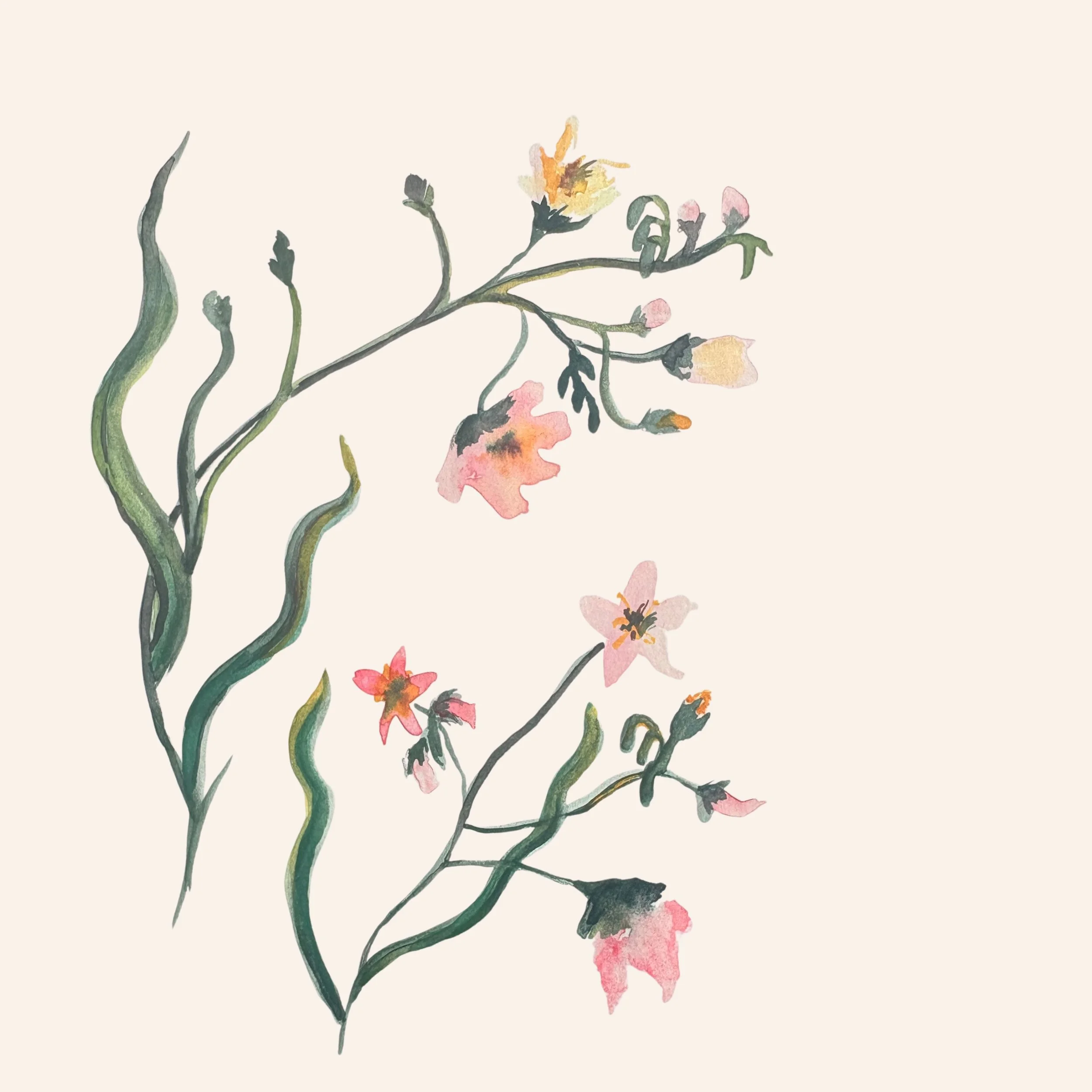Chemotherapy and Cancer
Through the uncertainty and fatigue of chemotherapy, I offer this Yoga Nidra as an internal space that you can keep returning to, a place where your body and mind are in full health. May this Yoga Nidra support your mind through the darkest of moments, connecting you to a deeper part of yourself.
Excerpts
— My intention for the yoga nidra that will be uploaded in a few days, was to provide anyone experiencing chemotherapy or with a cancer diagnosis to use as a golden rope. A piece of practical material to use as you progress through the experience of expelling this disease.
As I was writing the script for this episode, I was going to include accounts of people that I have worked with who have undergone chemotherapy and used Yoga Nidra to support them. While doing research, I stumbled across a psychology thesis published through California State University in 2010 by Ross Higerd. After reading through the entirety of it, some 120 pages, I decided that the best companion I can give you to accompany the yoga nidra, is excerpts from this thesis. Higerd survived a particularly harrowing experience of not only chemotherapy but the concurrent fracturing of all areas of his life. His thesis is a beautifully laid out narrative account of his experience of chemotherapy written through the lens of Jungian stages of the alchemical process as a way to frame his individuation. As I have never experienced chemotherapy, it feels more honest to share this lived experience and because it is written with such grace and honesty, I believe it is relatable to all.
The thesis is called The Leaving Place: Curative Poisons and the Alchemy of Chemotherapy. I will add the link to the show notes. I really encourage anyone interested to read the full thesis as it is a very moving story.
— Higerd describes the initial process of his experience in comparison to the stages of symbolic, physical, and psychological alchemy, he goes into more detail than I will here, and I do recommend reading the full thesis, but in the interest of time, I will be selecting key passages from the physical and psychological experiences as he progresses through each stage of his transformational process.
As an aside, This Jungian Life is doing a series of episodes, each episode covering a stage of the process of psychological alchemy, at the time of recording this they have released the first two stages. I recommend listening for anyone who is interested in the applications of these concepts.
— It is in this stage of calcination, that my favourite passage occurs. Higerd describes how intellectual his life had become in recent years, how lacking in feeling responses. While receiving chemotherapy, Higerd now homeless, was able to receive a small amount of disability funding to cover the cost of hotels during bouts of hospital visits for chemotherapy. In between his chemotherapy sessions, he camped and lived off the land through fishing. It was during one of his stints at a motel that he writes this passage:
”My ability to feel had become increasingly stifled over the years as my intellectual, thinking function became the controller of my psyche. I now began to be overwhelmed by powerful emotions. For instance, I knew there were only a few days of· nice weather left before the rains set in so, as mentioned above, I went camping. I purchased a tent and other camping supplies and one night, while practicing the assembly of my tent in the parking lot of a Palo Alto motel I was struck by the powerful smell of jasmine. It was a very warm October evening and the scent rode on the balmy air. This was a sense of smell greater than normal. The scent soaked my cells and I began to cry. I sought the source and found the blooming bush next to the hotel's garbage dumpster. I broke off a large branch and took it back to my room where I placed it on top of the lamp so the heat from the lamp might keep the smell alive.”
What Higerd is describing here is that through this calcination process, this explosive time where everything is thrown up in the air and seemingly falling apart, he is experiencing an explosion of feeling. The time of chemotherapy while undeniable a debilitating experience, has allowed an important function to return, to come in full force ready to respond to the subtle and the soft, the beauty of nature in bloom alongside a dumpster at the back of a motel is enough of a symbol of yes hope, but also the balancing of the opposites.
— The next stage of the alchemical process, is the Coniunctio. This is a very trying time for the psyche. In this space one is often wrestling with parts of oneself. This wrestling comes largely from the clash of opposites inside of us. The wrestling feels torturous and seemingly impossible to make sense of who we are in the thick of this malaise. Shaking off attachments to beliefs or patterns, lingering in between the awareness of having survived a major separation of a previous life or way of being, and now confronted with all of the alarming newness and possibility of what could be. Higerd writes:
”As I still had a great deal of psychic contamination which I would need to separate, I knew I still had quite a bit of work ahead of me. And while I did have some reprieve from the chaos from which I had emerged, I was very depressed and anxious. I remained very identified with my shadow and had begun to realize, and feel, the loss I had suffered. This depression seemed to increase once I was removed from the continuous medical treatment I was undergoing, slowed from the pace of the Bay Area, and trying to settle into my new environment. In the words of Maria Louise Von Franz “The coniunctio happens in the underworld, it happens in the dark when there is no light shining any more. When you are completely out and consciousness is gone, then something is born or generated; in the deepest desolation the new personality is born. When you are at the end of your tether, that is the moment when the coniunctio, the coincidence of opposites, takes place.”
— The next stage is fermentation. Something new has been introduced into the psyche during the coniuncio. That something needs time to ferment in the psyche. This is a time of little activity. The action is being taken beneath the surface. The proverbial saurkraut or beer is in the pantry and offers us nothing and we must leave it alone. Higerd writes:
”In the morning I rose naturally just after the winter sun. I had no motivation for anything. I did not care to eat. I did not care to check phone messages or email. I would open my eyes and stare out the window for long periods. Rather than look at something outside. I stared through the bare branches of the trees in the front yard into the Douglas firs in the distance. When I did focus on anything it was the crows flying in and out of the fir trees. I experienced no joy or happiness. I felt heavy and dull. I could no longer cry. My fingernails and toenails began to fall off.
I would lie in bed and stare at the ceiling for long periods. Somewhere within me was a kernel of hope that allowed me the energy to get myself to the doctor and seek help. The only positive of any kind was my hair coming back in. This was exciting and offered some hope. My hair was very soft. I was told this could happen after chemotherapy. It was during this period that I began to have a felt sense of my trials as being like the stages of the alchemical opus. The still strong feeling of having been cooked from the inside out in chemotherapy was overwhelming, and I related deeply to the calcination procedure. Likewise, losing my hair and my fingernails and toenails reminded me of the putrefaction. The desire to return to my Master's thesis was born in this darkness. I traveled to the library and began my study. I also had the desire to reconnect to family and friends with whom I had lost touch.
My own experience of psychological fermentation was so co-mingled with my physical fermentation that it is rather difficult for me to separate the two. My depression, isolation, and loneliness, as it occurred simultaneously with my body casting off my poisoned fingernails and toenails, and the insomnia and other physical ailments, seemed to meld together into one mass of rotting, lifeless, existence. It is in this rotting that fermentation begins to occur, as it does when grapes are removed from their life source, pulverized, then left alone to transform into wine . . I was alone, as one "must be alone if he is to find out what it is that supports him when he can no longer support himself. Only this experience can give him an indestructible foundation" (Jung, 1944/1968, p. 28).“

